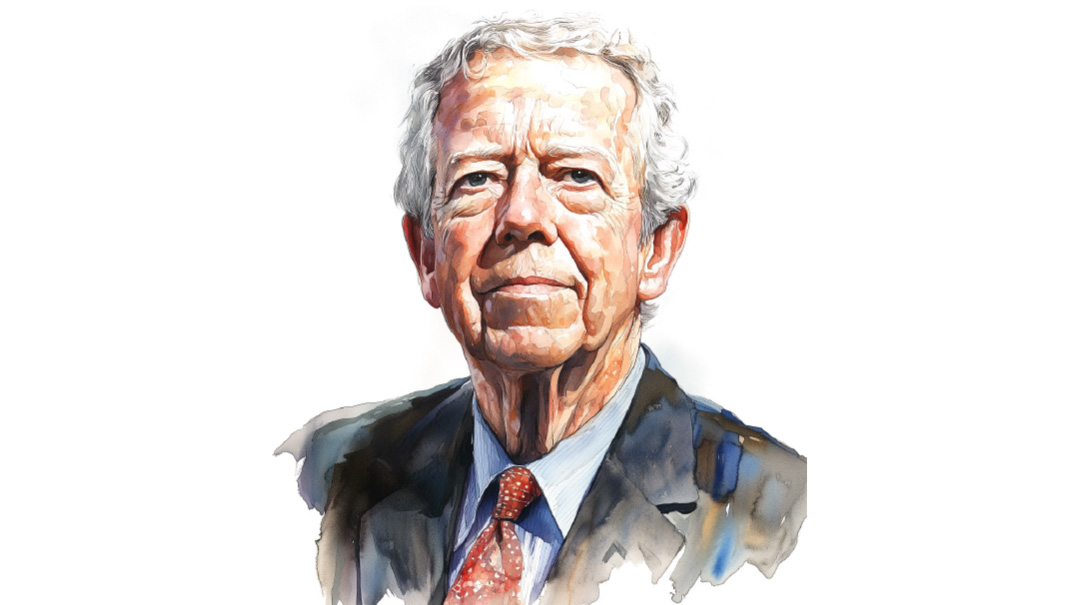Not Just Plain Jimmy of Plains, GA

James Earl Carter of Georgia was a riddle wrapped in an enigma

The captains and the kings depart, the pomp and ceremony of his state funeral comes to an end, but the debate about who President Jimmy Carter was lingers on.
His longtime aide, Stuart Eizenstat, himself a traditional Jew, stresses Carter’s major achievements, with the long-lasting Camp David Accords between Israel and Egypt as the jewel in the crown.
But Michael Oren, former Israeli ambassador to the US, writes that Carter disliked Israel and always favored the Palestinians over Israel’s claims.
The general street feeling is that Carter was not exactly a philo-Semite, but this is an oversimplification. If he were an anti-Semite, how can we explain the fact that he placed more Jews in high positions in his administration than any other 20th century president? And how can we explain that it was his personal intervention — rather than delegating the task to his assistants — that enabled many Iranian Jews to escape the tyrannical regime and be admitted to the US (a number of whom carried on their lives in Atlanta, Georgia)?
In the many years I knew him — over the course of my 40-year tenure as rav in Atlanta — I never sensed any aroma of anti-Jewishness about him. He especially respected observant Jews, and I remember seeing a notation of his on a White House briefing paper that said, “Clear this with Stu [Eizenstat, his domestic policy advisor] but do not call him on Friday nights unless extremely urgent.” On the contrary, he had one major complaint about Israel: as a religious Christian, he was very disappointed that many of the children of Abraham, Isaac, and Jacob now living in the Holy Land did not strictly maintain Jewish tradition.
His post-presidential tilt toward the Palestinians, his labeling Israel as an apartheid state, are vexing and unexplainable. When I wrote him about this, he replied in his own handwriting that to label him as an anti-Semite is “simply untrue.” But he did not explain his tilt.
Some have suggested that because of his innate decency, he was unable to recognize evil when he saw it, and thus did not fully appreciate the depths of cruelty and depravity that were part of Palestinian ideology. But this, like so many other theories about him, is yet another detour around his complexity.
He was not an easy person to know or to understand, and thus is not easily categorized. It is tempting to pigeonhole him, but this is an injustice to a subtle and complicated individual. He was much more than a simple peanut farmer with a deep southern drawl who was in over his head in Washington, as some analysts have depicted him. His signature smile concealed a powerful inner drive and a brilliant mind, revealed only by his unsmiling steely blue eyes. In person, he had a certain charisma, which did not easily translate itself to the screen.
He was probably the most well-read president of modern times, certainly the most intelligent, and clearly the most ethical and moral — but such qualities are not always in sync with being a good politician. His fine sense of values came to the fore after his presidency, when he went back to his simple house in Plains, Georgia, and busied himself in trying to help the poor with their housing issues. Contrast this with a recent former president who, upon leaving the White House, bought himself a $20 million estate.
James Earl Carter of Georgia was a riddle wrapped in an enigma. Historians will have difficulty unraveling who he really was. But of one hazard they should beware: Do not be tempted by the trap of oversimplification.
(Originally featured in Mishpacha, Issue 1046)
Oops! We could not locate your form.







